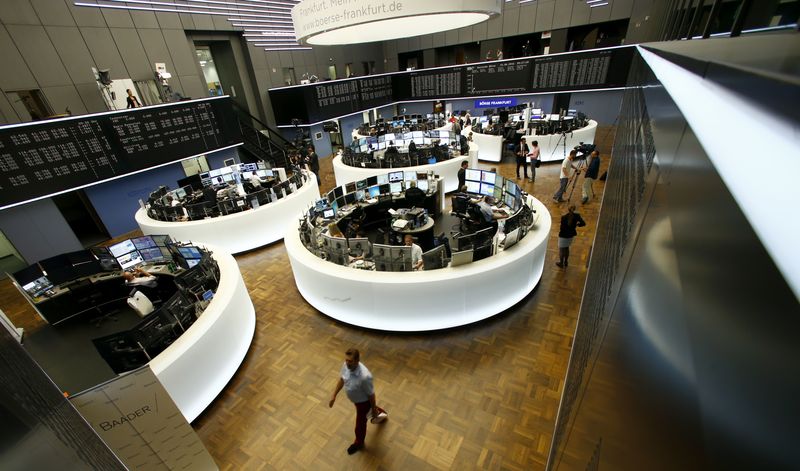Nvidia among investors in xAI’s $20 bln capital raise- Bloomberg
Investing.com - Inflows into European stocks have spiked in the opening three months of 2025, although the risk of an economic slowdown due to U.S. President Donald Trump’s tariff plans could dent this trend, according to analysts at Barclays (LON:BARC).
Investors, enticed by relatively cheaper valuations and growing calls from regional governments to increase military spending to reduce their reliance on the U.S. for a security backstop, have recently moved to snap up European equities.
In a note to clients on Tuesday, the analysts led by Emmanuel Cau said European stocks have seen inflows of $24 billion so far this year, the highest since 2017.
Meanwhile, the pan-European Stoxx 600 has climbed by roughly 5.5% year to date, outperforming the S&P 500. The U.S. benchmark average has slid by more than 4% during the same period.
"Real money has [...] shown a [...] dynamic of risk transfer from U.S. to Europe. Europe received more inflows than the U.S. last month, reversing most of the outflows seen after the U.S. election in November-December," the Barclays analysts wrote.
EU equity inflows have also come with a pick-up in the value of the euro, suggesting increased optimism around growth in Europe thanks in part to a recent decision by German lawmakers to relax longstanding borrowing limits, the brokerage added.
Despite the magnitude of inflows into Europe from the U.S. being "relatively small" at $10 billion this year, U.S. investors have "clearly started to add more to EU equities," the analysts said.
However, they warned that if Trump’s proposed tariffs "morph into a growth scare," many of these so-called "tourist investors" who have bought lately may be "the first to sell."
The comments come as Trump is expected to unveil sweeping new tariffs on April 2 that would could upend the U.S.’s trading stance with a host of foreign countries. The European Union has been a previous target of Trump’s trade-related ire, while the bloc has said it "will continue to seek negotiated solutions, while safeguarding its economic interests."
Trump has argued that the tariffs are necessary to correct imbalances between the U.S. and its foreign trade partners, as well as a tool to bring manufacturing jobs back to the country. However, some economists have warned that the duties will refuel inflationary pressures and weigh on growth, leading to a period of so-called "stagflation."
